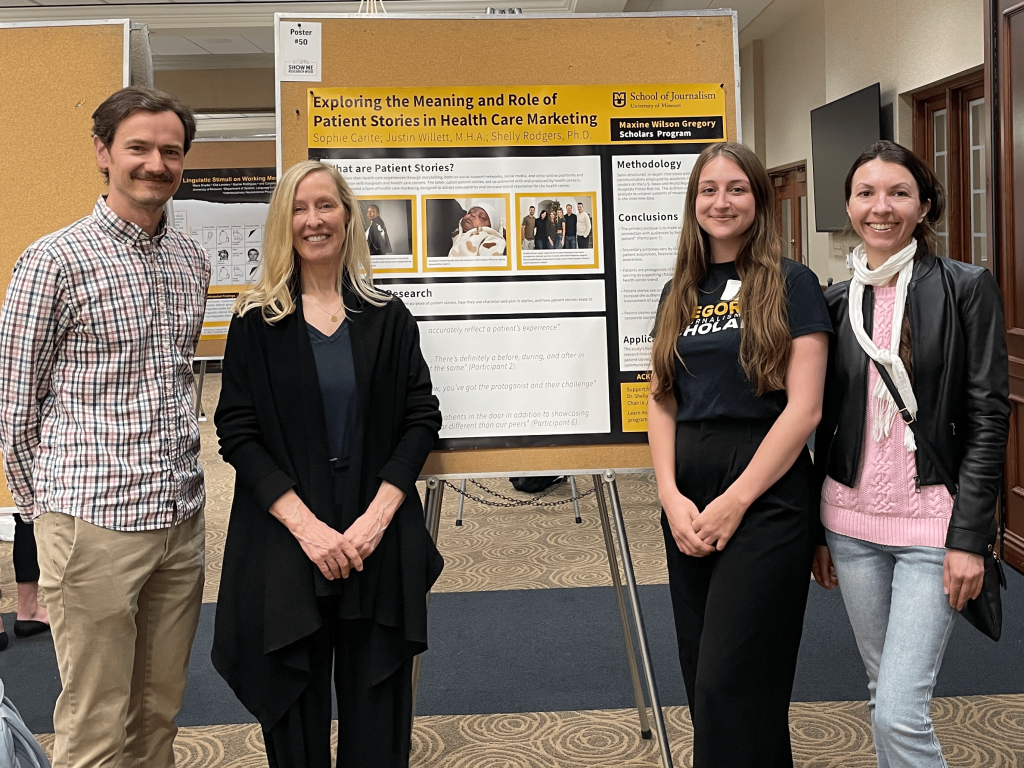Exploring the Meaning and Role of Patient Stories in Health Care Marketing
Sophie Carite, Justin F. Willett, M.H.A., and Shelly Rodgers, Ph.D.

Left to right: Justin F. Willett, Shelly Rodgers, Sophie Carite, and Evgeniia Belobrovkina
Abstract: Patients share their health care experiences through storytelling, both on social support networks, social media, and other online platforms and in collaboration with hospitals and health care centers. The latter, called patient stories, are co-authored with and produced by health centers, and they represent a form of health care marketing designed to attract new patients and increase brand reputation for the health center. Although this type of patient storytelling has not been the focus of much research, studies on the use of patient stories in medical decision making have found that they affect judgments, values, and decisions differentially than non-narrative communication, increasing the possibility they will bias health care decision-making. The goal of the current study is to understand how the health center communicators who produce patient stories understand their purpose and meaning. The authors conducted semi-structured, in-depth interviews with 11 communicators employed by academic health centers on the U.S. News and World Report Best Hospitals Honor Roll list. The authors used thematic analysis to uncover patterns of meaning and themes in the interview data. Results show that communicators’ primary goals when writing patient stories are to accurately represent the patient’s health care experience; to ensure the patient’s privacy is protected and their storytelling preferences respected; and to craft compelling narratives that capture audience attention. Communicators also recognize that their goals help to achieve their organizations’ strategic business goals related to increased reputation and demand for services. The study’s findings can be used to inform future research into the content, effects, and ethics of patient stories, and they can inform health center communicator best practices.